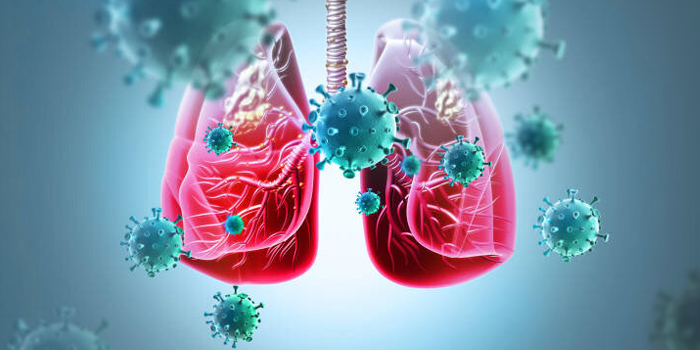Introduction
Lung cancer remains one of the most commonly diagnosed cancers worldwide, affecting millions of individuals each year. It is vital to understand this disease, its causes, symptoms, and stages for early detection and effective Cancer treatment.
This blog delves into the basics of lung cancer and highlights the significance of being vigilant about this condition.
What Is Lung Cancer?
Lung cancer occurs when abnormal lung cells grow uncontrollably, forming a tumour. These cancerous cells can interfere with the normal functioning of the lungs, making it difficult to breathe and affecting oxygen distribution throughout the body. Over time, the cancer may spread to other parts of the body, a process known as metastasis.
Lung cancer is often linked to smoking, but non-smokers are not immune. Factors such as prolonged exposure to vehicle emissions, industrial pollutants, and second-hand smoke can also contribute to the development of lung cancer, underscoring the importance of awareness and preventive measures.
Types of Lung Cancer
Lung cancer is broadly classified into two main types based on the appearance of cancer cells under a microscope:
- Non-Small Cell Lung Cancer (NSCLC): This is the most common type, accounting for approximately 85% of cases. It includes subtypes such as adenocarcinoma, squamous cell, and large cell carcinoma.
- Small Cell Lung Cancer (SCLC): This type is less common but more aggressive, often spreading rapidly to other body parts. SCLC is strongly associated with smoking.
What Are the Main Causes of Lung Cancer?
Several factors contribute to the development of lung cancer. While smoking remains the leading cause, other factors also play a significant role:
- Tobacco Smoke: Both active and passive smoking expose the lungs to harmful carcinogens, increasing the risk of cancer.
- Environmental Pollutants: Exposure to air pollution, including automobile emissions and industrial chemicals, can damage lung tissue over time.
- Radon Gas: Naturally occurring radon gas can accumulate in homes and pose a risk when inhaled.
- Genetic Factors: A family history of lung cancer may increase susceptibility.
- Occupational Hazards: Jobs that expose individuals to asbestos, arsenic, or diesel exhaust can elevate the risk of lung cancer.
Symptoms of Lung Cancer
The symptoms of lung cancer may vary depending on its stage and location, often mimicking those of less severe conditions. Early detection is crucial, and recognising the following symptoms can lead to timely intervention:
- Persistent cough that worsens over time
- Chest pain that intensifies with deep breaths, coughing, or laughter
- Shortness of breath or wheezing
- Coughing up blood or rust-coloured sputum
- Unexplained weight loss and fatigue
- Frequent respiratory infections, such as bronchitis or pneumonia
If you or someone you know experiences these symptoms, it is essential to seek medical attention promptly.
Lung Cancer Stages
Lung cancer is categorised into stages to determine its severity and extent of spread. Understanding the stages helps guide the treatment plan:
- Stage 0: Cancer is localised and has not spread to nearby tissues. It is often referred to as carcinoma in situ.
- Stage I: The cancer is confined to the lung and has not spread to lymph nodes.
- Stage II: The cancer has spread to nearby lymph nodes or structures but remains limited to the chest.
- Stage III: The cancer has spread more extensively within the chest, including nearby organs.
- Stage IV: The cancer has metastasised to distant organs, such as the liver, brain, or bones.
Early-stage lung cancer has a better prognosis and is more amenable to treatment.
Types of Lung Cancer Treatment
Lung cancer treatment varies based on the type, stage, and overall health of the patient. At ICCG, we provide comprehensive care with state-of-the-art facilities and a patient-centric approach. Here are the primary treatment options:
- Surgery: In early-stage lung cancer, surgery is performed to remove the tumour or affected lung tissue.
- Radiation Therapy: High-energy beams are used to target and destroy cancer cells, often used when surgery is not an option.
- Chemotherapy: Anti-cancer drugs are administered to kill or slow the growth of cancer cells, particularly in advanced stages.
- Targeted Therapy: This treatment focuses on specific genetic mutations or proteins driving cancer growth.
- Immunotherapy: Immunotherapy boosts the body’s immune system to fight cancer cells effectively.
- Palliative Care: For advanced cases, palliative care focuses on improving the quality of life by managing symptoms and providing emotional support.
Conclusion
Lung cancer is a complex disease that requires awareness, early detection, and specialised care. Understanding the basics of lung cancer (its causes, symptoms, and stages) empowers individuals to make informed decisions about their health.
At ICCG (Integrated Cancer Care Group), located in Chennai, we are dedicated to providing world-class lung cancer treatment with a holistic approach to patient care. Guided by our motto, Passion for Patient Care, we combine expertise, cutting-edge technology, and compassionate care to ensure the best outcomes for our patients. As a leading lung cancer hospital in the region, we invite you to visit ICCG India for a consultation and take the first step toward a healthier tomorrow.







